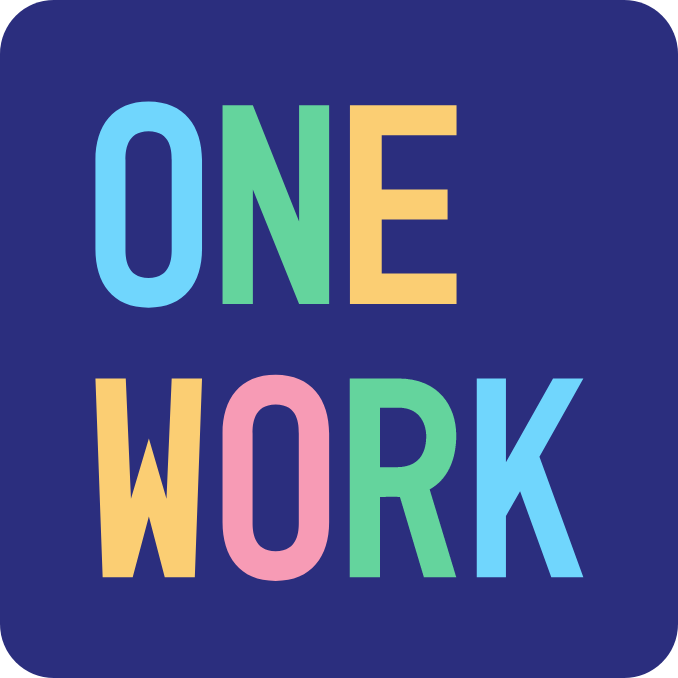No. 153: Cooperative Housing
Swiss nonprofits have pioneered a concept called cooperative housing that eliminates the idea of capital gains in homeownership to keep monthly payments much lower than market rates.

The Swiss have pioneered a unique affordable housing model where renters purchase shares in nonprofit-owned cooperatives and enjoy rents well below the going market rate. It's not a one-off situation, nor is it just for income-qualified renters: in Lausanne, Switzerland, 8% of dwellings are co-ops. This week, we're reviewing the cooperative housing model and adjacent approaches in the United States.
This week's featured job is with a Certified B Corp focused on personal care, which is a common focus for many social enterprises. Chances are you're already making purchases aligned with your values, and this is an opportunity to help more people transition to impactful products. I'm also sharing a link to a small nonprofit-oriented job board with a focus on executive-level roles: lots of high-paying, impactful opportunities to be discovered. Shall we dive in?
~ Greg
What we're reading
Swiss nonprofits have pioneered a concept called cooperative housing that eliminates the idea of capital gains in homeownership to keep monthly payments much lower than market rates. (NYT)
- The idea is that residents purchase membership shares at face value – similar to joining a co-op in the U.S. – and pay rent based on the cooperative's operating costs.
- Since the cooperative is run by a nonprofit, there's no incentive to maximize the amount of money made off the members. Cooperatives are open to residents regardless of their income, and they are popular: the waitlist at the largest co-op in Lausanne, Switzerland has over 1,000 people on it.
- One of the people featured in the article pays around $2,200 per month for a unit whose going rate is $4,465. That's some serious savings, and it illustrates why this model could help with housing affordability.
- It's helpful to note that this isn't a nonprofit or two running a pilot project. In Lausanne, 8% of dwellings are co-ops.
- Government assistance is still at play in some cases. They provide financial support to new housing projects, like cities providing discounted land leases and low-interest loans. They may also purchase shares in the co-op to support low-income residents.
- Once they're up and running though, co-ops can be self-sustaining. The 2008 financial crisis eliminated some co-ops, but the oldest co-op dates back to the early 1900s. One uses the value of its existing assets – hundreds of millions of francs' worth – as collateral to finance further expansion.
- Could we adapt this model to the U.S.? I think so, and there's evidence of similar ideas already.
- For example, there are nonprofits such as BRIDGE Housing and Mercy Housing in the U.S. that own housing portfolios. Some nonprofits are specifically focused on low-income residents, residents with special needs, and seniors, so they don't have the broad appeal of the co-ops I've discussed here but clearly have an impact.
- You might also consider community land trusts, which purchase land to help insulate homeowners from price increases. CLTs retain ownership of their land and sell homes to residents using deed restrictions to limit resale prices.
- Like cooperatives, CLTs prioritize community control and affordability over profits, though they focus more on preserving the path to homeownership rather than the rent-based approach associated with Switzerland's co-ops.
Job of the week
If you've wandered down the personal care aisle at your local grocery store, you might be familiar with Dr. Squatch, a Certified B Corp and purveyor of men's hygiene products. They've recently launched a women's brand called Jukebox, and they're hiring an Associate Director of Growth specifically to lead their eCommerce growth strategy.
Chances are you're already making purchases aligned to your values, and I like to say we vote with our wallets. It may seem like an eCommerce job is an unlikely way to create social impact, but personal care products are regular purchases for millions of people. Why not help more people make the switch to something better for their bodies and the planet?
Community roundup
- Mark Bittman, a well-regarded food writer, has started a nonprofit restaurant called Community Kitchen with variable meal prices. The intent is to provide healthy, sustainable food regardless of a diner's affluence. (Fast Company)
- The first restaurant is a pilot and is backed by philanthropic organizations. Community Kitchen is exploring ways to become self-sustaining, perhaps by opening a for-profit restaurant to help fund it.
- Coldplay has started deploying flexible solar panels to help power its concerts, using technology from the company Kardinia Energy. (Forbes)
- These are not your traditional solar panels: they're lightweight and easier to deploy in areas that were historically off-limits. In Australia, the printed solar panels can be added to buildings where weight restrictions prohibited installation in the past. They're also exploring applications where temporary use can be helpful, such as disaster response or sporting events.
- A recent study in Science found that mines in the United States are overlooking critical minerals for clean energy technology. (Grist)
- Mines dig up a lot of minerals, not just the ones they're looking for. Most are discarded as waste, but that waste contains lithium and manganese. According to the study, there is enough lithium in the waste to power 10 million EVs and enough manganese to power 99 million EVs.
- Keep in mind that we import a significant amount of these minerals from other countries, so this implies a major national security benefit if we can change our mining operations.
- For the design lovers out there, the Eames Molded Plastic Dining Chair is making a return as a recycled plastic chair. (Fast Company)
- Being Eames, I must sadly report that the chair is exorbitantly expensive – but it reminds me of other design-forward efforts to make sustainability desirable and not just values-oriented.
- See MycoWorks for another example of this: they make "leather" derived from mycelium, the roots of fungus.
Civic corner
- Florida Highway Patrol and LGBTQ+ advocates are engaged in a battle of wills in Orlando after the Florida Transportation Department painted over a crosswalk memorial meant to honor the victims of the Pulse massacre, the second-deadliest mass shooting in recent history. (NBC News)
- Advocates have colored in the painted crosswalk with chalk on multiple occasions, and FDOT has responded by repainting the crosswalk. As of this writing, there appears to be a much lower presence of Florida Highway Patrol officers.
- One thing that stood out to me is how the Orlando Police Department engaged with FHP and advocates, effectively mediating between them. We need more level-headed leadership like that.
- The National Park Service has lost nearly one-quarter of its employees since President Trump took office, either due to resignation initiatives or firings. (NYT)
- Among the impacts: 9 parks with cuts to fee collection, 16 parks with cuts to education programs, 30 parks with cuts to park maintenance, and 8 parks with cuts to emergency response.
- Acting NASA Administrator and current Transportation Secretary Sean Duffy said that NASA will shift its focus solely towards space exploration, eliminating climate and earth science efforts. (The Hill)
- The Trump Administration ordered construction to stop on Revolution Wind, a wind farm off the coast of Rhode Island that has neared completion, citing national security interests. (NYT)
- Revolution Wind was on track to provide power for 350,000 homes in Rhode Island and Connecticut next spring.
- The company behind the project, Ørsted, has signaled its intent to fight the action in court if needed. Multiple projects across the country have also been targeted, including Empire Wind off the coast of Long Island and Lava Ridge Wind planned for Idaho. Empire Wind is now back on track, but only after the Governor of New York intervened.
Hot job opportunities
- Vice President of Client Success – Summer – Remote
- Project Accountant – Biohabitats – Baltimore, MD
- Sales Associate - Ethical Fashion – Wolf & Badger – Los Angeles, CA
- Enterprise Account Executive – Mursion – Remote
- SVP of Operations – Murmuration – Remote
- VP, Product Marketing – Posit – Remote
- Manager, Scaled Customer Success – Udemy – Denver, CO
- Sr. Trade Manager – Vital Farms – Remote
- Development Officer, Corporate Engagement – Exploratorium – San Francisco, CA
- Director of Information & Cybersecurity – QuantumScape – San Jose, CA
Resource of the week
I'm adding to your list of job board bookmarks this week with a small nonprofit-oriented job board: Impact Opportunity. There are larger, more comprehensive sources of nonprofit jobs elsewhere, but this one uncovered a number of organizations I hadn't heard of before, and most roles are executive-level and pay very well. If you're already working for a nonprofit and want to enter a leadership position or you're ready to make the leap from the corporate world, consider perusing the opportunities here.
Test your knowledge
Polio is a terrible disease that can lead to paralysis and trouble breathing, but it has largely been eliminated due to the vaccine developed by Jonas Salk in 1955. We discussed smallpox in a previous newsletter, and it remains the only human disease to be eliminated.
Polio is close to eradication itself, but it faces challenges in Afghanistan and Pakistan. Until those areas are addressed, we risk outbreaks where vaccination rates are lower.
Speaking of good health, I have a question about nutrition this week:
What does the term "food desert" refer to?
Email me your guess, and I'll send one lucky winner a couple of One Work stickers!
I have been packing my summer full of outdoor activities, and I went camping on the Oregon Coast last weekend. It makes me wonder how many people motivated by environmental impact have been influenced by their time in nature – are we advocates because we are also stakeholders?

